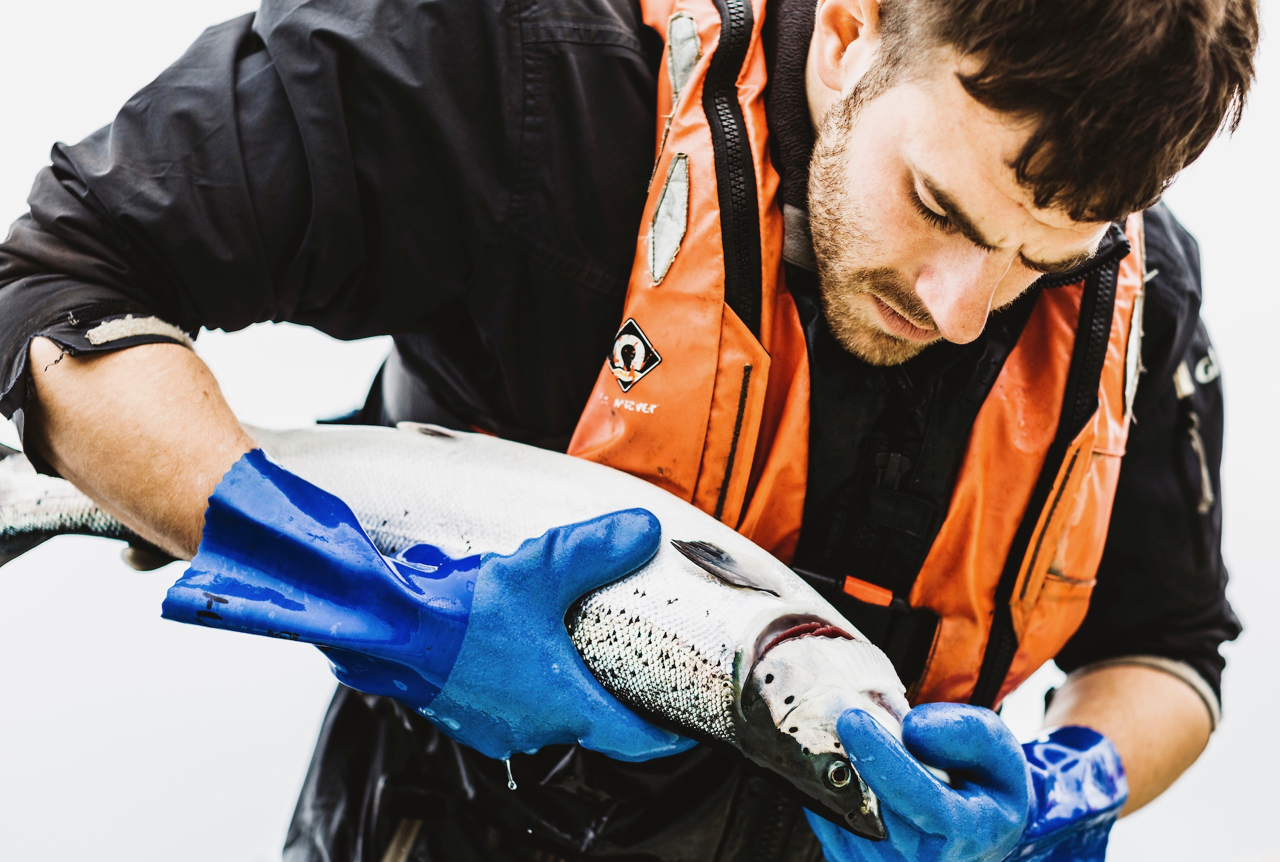Salmon farms cut antibiotic use by 60%

THE use of antibiotics in salmon farming in the UK has fallen 60 per cent, according to a new report by the Responsible Use of Medicines in Agriculture Alliance (RUMA).
The salmon sector used 1,011.3 kilograms in 2018, a decrease based primarily on a reduction in the number of treatments required in the seawater phase of production.
This overall use equated to 6.5 mg/kg of production, slightly higher than the ambitious target of 5mg/kg established by RUMA’s Targets Task Force in 2017, but antibiotic treatments are still relatively infrequent in the salmon farming sector. The figure for 2017 was 16.1 mg/kg.
The report noted that as poikilotherms (cold blooded fish), salmon can see their health compromised by variations in the quality and composition of the water, including the presence of potentially harmful organisms such as algae and plankton.
‘Although antibiotic use decreased in 2018, environmental challenges were still evident and the sector remains mindful that variable environmental conditions (for example due to global climate change) may impact health management in the future,’ the report said.
‘Usage figures to date and in the future will therefore reflect a balance between minimising antibiotic use and ensuring fish health and welfare.’
The report also noted that all Atlantic salmon are vaccinated prior to seawater transfer and new vaccines are continuously under development to improve efficacy and to broaden the suite of pathogens the fish are protected against.
In the absence of appropriate licensed vaccines, autogenous vaccines continue to be developed and used wherever possible.
Autogenous vaccines are also used to support the health management of cleaner fish where necessary.
RUMA said: ‘Changing environmental conditions remain a concern but salmon farmers have always been innovative, and will seek to utilise the latest science and technology to help predict and mitigate against these challenges.’
RUMA gave credit to the Prescribing Vets group, set up by the Scottish Salmon Producers Organisation (SSPO) in 2017, to address antibiotic targets.
This body, which represents all salmon farming companies, is now expected to engage further with organisations such as the Scottish Environment Protection Agency (Sepa), the Animal and Plant Health Agency (APHA) and Veterinary Medicines Directorate (VMD).
The trout sector recorded usage of 0.16 tonnes of antibiotics, representing 13 mg/kg, a 32 per cent reduction on the figure reported in 2017, according to the RUMA report.
Sales of antibiotics for food producing animals overall have fallen 53 per cent since 2014 to 30 mg/kg and are one of the lowest in Europe.
Read the full report here https://www.ruma.org.uk/wp-content/uploads/2019/10/SO-309-RUMA-TTF-2-years-on-Full-Report-LR.pdf

